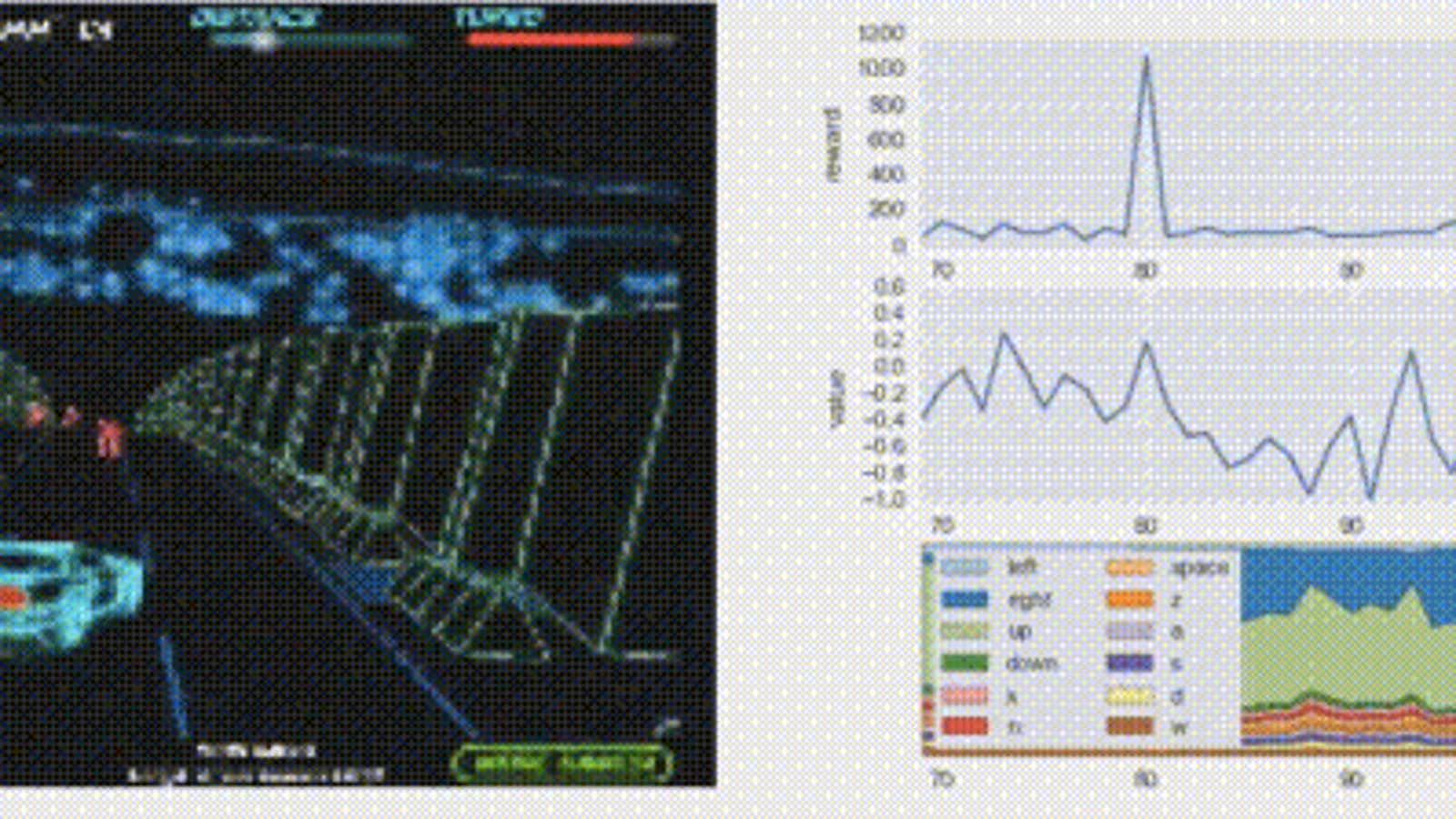Artificial intelligence (AI) is usually built into the software we use, from automatic tagging on Facebook to chatbots in Google and Apple’s mobile operating systems. Instead of injecting AI into software, a new tool from OpenAI teaches algorithms to control a computer the way a human would: by looking at pixels and using a virtual keyboard and mouse.
The tool, called Universe, is meant to be a one-stop shop for a popular flavor of AI research called reinforcement learning, where an AI agent tries to accomplish a task, learning from its mistakes over thousands or millions of iterations. With it, researchers could teach an algorithm to theoretically master any task a human could complete on a computer, from video games to browsing the internet looking for information. Universe also acts as a standardized benchmark for AI, as it can compare human and machine performance on certain tasks.
Winning any video game or surfing the internet is modest compared to the overarching goal: To create software akin to general intelligence, with the ability to do any new task on the computer. OpenAI hopes that once algorithms learn to solve a few tasks in Universe, they’ll be able to transfer that knowledge to new challenges.
“The key ability that we would like our AI systems to have is a certain general problem-solving ability,” OpenAI’s research director Ilya Sutskever tells Quartz. “Where you can take the agent and place it in a new world, and it will understand exactly what’s going on, figure out what it should do, and then accomplish that.
Sutskever describes an ideal version of the AI agent that sounds a lot like a human. His perfect AI trained in Universe uses experience from a series of tasks that it has mastered, like what certain buttons do on the internet and how to read, and applies them to something new like Photoshop.
Universe’s use cases are as wide as the name implies—researchers can not only train and test their AI agents in the system, but also use it to objectively benchmark progress. Researchers can also give their AIs a running head start by recording their own actions in video games or internet browsing, to give the algorithm examples of correct behavior. Brockman likens the concept of Universe to ImageNet, the standard data set for training and benchmarking image-recognition AI. While Universe is much different, as it’s software rather than data, the two are both accessible ways to tackle a larger problem. ImageNet tests whether an AI understands the world around it—Universe challenges the AI to act in that world.
“As long as you have a task that’s impossible for current techniques, but you can get started, and there’s a smooth gradient that brings you the way you want to be, that’s the trick,” Brockman said.
Giving algorithms the power to explore the internet on their own, or interact with any software at high speeds regardless of the original developer’s intent, could supercharge AI’s use on the internet for both good and malicious purposes. The gathering of complex information could be automated, or AIs could hunt down the best flight deals, but they could also be used to automate spam or harassment or vast, complex cyberattacks.
The team hopes to make several hundred environments, each for different applications, over the coming years. Their first released environment that’s been solved is Pong, which the computer can master in less than 10 minutes.
OpenAI was founded in December 2015, championed by Silicon Valley darlings Elon Musk and Sam Altman. Its goal is to ensure that AI research would be accessible to all, by conducting cutting edge research and making it openly available. Universe, as well as other open source code released by the nonprofit, falls in line with that original goal of democratizing the field. Universe will also play nice with other AI research endeavors; on launch, Microsoft will integrate their Minecraft-like Malmo software for easy use in Universe.
“Today it is harder to work on a general problem-solving agent because of the lack of environment for progress to happen,” says Greg Brockman, OpenAI’s CTO. “This is dating back to the first conversations about OpenAI. This is the thing we really wanted to build to accelerate our own research and accelerate the field.”
